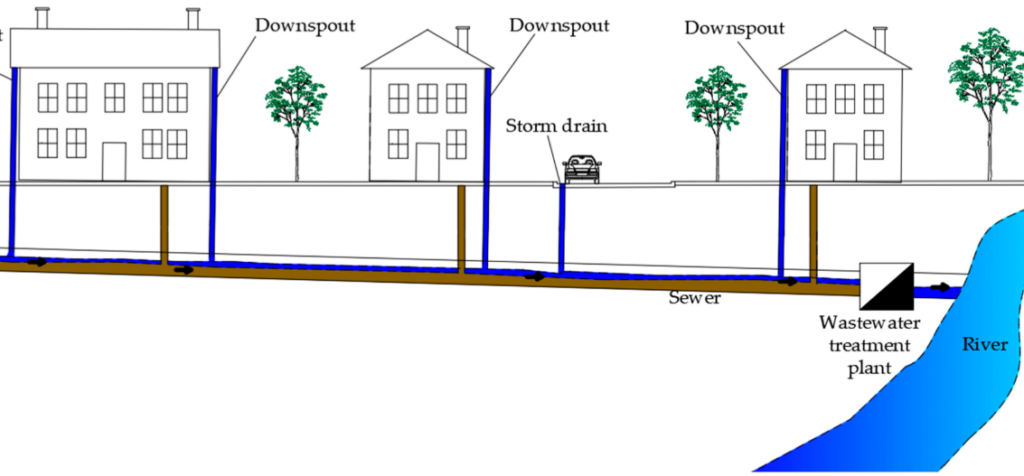Key Takeaways:
- Adequate water and sewer systems are crucial for urban sustainability, affecting public health, environmental conservation, and urban development.
- Investigating the technologies and strategies used in efficient water management can help cities reduce wastage and improve service delivery.
- Community involvement and awareness are pivotal in improving water use and preventing sewer blockages.
Efficient water and sewer systems are vital to urban environments, underpinning every aspect of city life. These systems are designed to provide reliable access to clean water, which is imperative for both personal consumption and everyday household activities. Similarly, they effectively handle wastewater, making it specific that it is securely moved outside cities and appropriately cleaned before reintroducing into the environment. A sewage cleanup Lone Tree services showcase the critical role of infrastructure upkeep. In addition to protecting public health, this type of management is necessary to promote sustainable urban growth and improve locals’ living standards.
The demand for these infrastructures rises in tandem with the growth of metropolitan populations. This increase calls for the adoption of innovative solutions and strong community involvement to handle issues like resource shortages and environmental risks. By utilizing cutting-edge technologies to improve water use and sewer management, cities may reduce waste and environmental degradation and pave the road for a more sustainable urban future.
Introduction to Urban Water and Sewer Systems
Water and sewer systems are the invisible lifelines of urban areas. These complex networks ensure that millions of urban inhabitants have uninterrupted access to water for hygiene, cooking, and consumption. In addition, they remove and treat wastewater, thus playing a fundamental role in maintaining urban sanitation and public health standards. Unlike standalone components, these systems require adequate planning, design, and management. The connectivity and interdependence of these networks mean that the failure of one part can lead to systemic disruptions, making efficient maintenance and upgrades crucial for their smooth operation.
The Role of Water and Sewer Infrastructure in Urban Development
Water and sewer infrastructure development is a cornerstone of urban growth, directly influencing residential, commercial, and industrial expansion. These systems provide the necessary resources and sanitation services that allow cities to attract businesses and residents alike, contributing to economic vitality and increased living standards. For example, inadequate water supply or faulty sewer systems can deter new investment, lead to health crises, and infringe upon residents’ quality of life. Ensuring these systems are continuously updated and maintained supports sustainable urban progress, facilitating resilient and thriving communities.
Innovative Technologies in Water Management
Technological innovation is increasingly steering the future of water management in urban centers. Cities are adopting innovative metering systems that provide real-time water usage data, helping utilities and consumers manage consumption more efficiently. Leak detection technologies enable quick response to potential issues, significantly reducing water loss and the negative impact of leaks on infrastructure. Moreover, greywater recycling initiatives are being implemented to allow for the purification and reuse of wastewater, significantly reducing the demand for fresh water. The incorporation of innovative water management technologies is proving transformative. This practice enhances water conservation efforts and improves service delivery through increased efficiency and reduced operating costs.
Environmental Impacts and Conservation Efforts
Water and sewer systems are deeply intertwined with the environment. They regulate water extraction and manage waste discharge, influencing the health of ecosystems and biodiversity. Unchecked, these activities can lead to severe pollution and depletion of natural water sources. Conservation initiatives address these challenges by optimizing water use, improving wastewater treatment processes, and reducing pollution from industrial and residential sources. By prioritizing environmentally sound practices, cities can minimize their ecological footprint while ensuring the sustainability of essential water resources for future generations.
Challenges in Urban Water and Sewer Management
Managing rapidly expanding urban areas’ water and sewer needs presents many challenges. Aging infrastructure poses significant risks, often leading to inefficiencies and service interruptions. Additionally, urban sprawl increases the demand on existing systems, straining capacities and necessitating expansion and upgrades. Climate change further complicates management efforts by altering water availability and increasing the frequency of extreme weather events that disrupt systems. With these formidable challenges, cities must proactively plan and invest in infrastructure improvements, utilizing data-driven strategies and system enhancements to ensure reliability and sustainability.
The Future of Water and Sewer Systems in Cities
As urban populations expand, the need for resilient and efficient water and sewer systems becomes more critical. Future initiatives will likely emphasize the integration of advanced technologies and innovative management strategies. These efforts will focus on optimizing resource use while anticipating the challenges of climate change and increased demand for services. Leveraging data analytics, technology, and community cooperation, cities can build systems that withstand future pressures and lead the way in sustainable urban living. The path forward lies in creating adaptive systems that are both economically viable and environmentally responsible.

